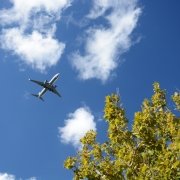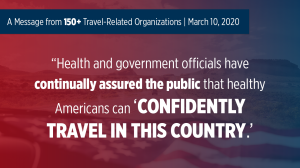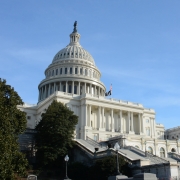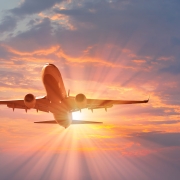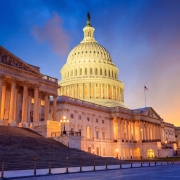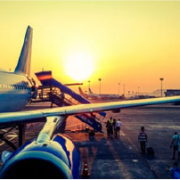NACA Proposes SAFETY Protocols for Resumption of Commercial Air Travel
NACA releases “SAFETY: The Necessary Elements to Return Passengers to the Skies,” outlining principles for the U.S. airline industry to resume regular operations.
Arlington, Va. – The National Air Carrier Association (NACA) today issued an initial set of principles for the resumption of regular commercial flight operations in the wake of the economic and societal disruptions unleashed by the onset of the COVID-19 pandemic. “SAFETY: The Necessary Elements to Return Passengers to the Skies,” outlines actions NACA believes must be taken to ensure that the U.S. airline industry can restore public confidence and be a safe catalyst for economic recovery.
“The SAFETY principles are a critical first step in what we believe should be a collaborative planning process between the federal government and industry stakeholders for U.S. airlines to resume normal flight operations when it is safe to do so,” said NACA President and CEO George Novak. “The U.S. airline industry will be a vital component of America’s economic recovery. To be successful, the public must be confident that they can fly with us without risking infection from COVID-19.”
SAFETY is an acronym, referring to:
- Safety: Every effort must be taken to ensure that passengers, crews and those working on aircraft are protected from further exposure to the COVID-19 virus.
- Access: Access to air travel – and the resulting consumer spending at hotels, restaurants, resorts and retail establishments – will be a critical element of the economic recovery.
- Flexibility: Airlines must have the flexibility to shift aircraft and routes to meet demand as it ebbs and flows during the recovery.
- Economic Viability: Restrictions on air travel cannot be so stringent that passengers can’t fly easily and affordably, and airlines can’t return to profitability and protect jobs.
- Testing: The federal government must work quickly and methodically to deploy a measured approach to COVID-19 testing in airports that utilizes the latest technologies for both screening (e.g., non-contact temperature scanning and effective antibody testing) and credentialing (biometric or tamper-proof identification systems) for those safe to fly and interact with others.
- You: The most critical element in returning to the skies is you. You are the reason we fly. More than anything else, we care about your health and safety and helping you return to better days.
A pamphlet with more detail on the SAFETY principles can be found on NACA’s website here.
“America’s economic recovery will require enormous, coordinated efforts from governments, industries and people across the nation,” Novak said. “We look forward to working with all stakeholders to plan for resuming regular activities and hope the SAFETY principles serve to kickstart those discussions.”

